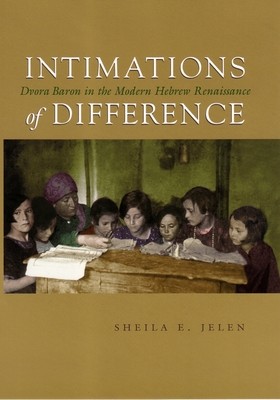
- We will send in 10–14 business days.
- Author: Sheila Jelen
- Publisher: Syracuse University Press
- ISBN-10: 0815631308
- ISBN-13: 9780815631309
- Format: 15.9 x 23.6 x 2.3 cm, hardcover
- Language: English
- SAVE -10% with code: EXTRA
Reviews
Description
Dvora Baron (1887-1956) has been called "the founding mother of Hebrew women's literature." Born in a small town on the outskirts of Minsk to the community rabbi, Baron immigrated from the Jewish Pale of Settlement to Palestine in 1910. Although she was not the only woman writing in Hebrew in the first few decades of the twentieth century, Baron was the only woman to achieve recognition in the canon of modern Hebrew fiction during that period.
As such, her work reflects both the revolutionary and conservative qualities of the Modern Hebrew Renaissance. Rooted in the Jewish tradition and using the Hebrew language as its battle cry, the Modern Hebrew Renaissance can be said to have distinguished itself from its patriarchal past by fostering a woman's literary emergence. At the same time, the fact that Dvora Baron was the only woman writing in the first decades of the twentieth century who was included into the Renaissance's literary canon indicates the movement's resistance to its own potentially revolutionary nature. Sheila E. Jelen reveals how Baron viewed her own singularity and what this teaches us about the contours of the Modern Hebrew Renaissance--its imperatives and assumptions, its successes and failures. This is the first full-length, English language treatment of Baron's Hebrew corpus. It will be of interest to scholars of literary studies, gender studies, Jewish cultural studies, Jewish literary studies, and Hebrew literary studies.EXTRA 10 % discount with code: EXTRA
The promotion ends in 16d.09:22:59
The discount code is valid when purchasing from 10 €. Discounts do not stack.
- Author: Sheila Jelen
- Publisher: Syracuse University Press
- ISBN-10: 0815631308
- ISBN-13: 9780815631309
- Format: 15.9 x 23.6 x 2.3 cm, hardcover
- Language: English English
Dvora Baron (1887-1956) has been called "the founding mother of Hebrew women's literature." Born in a small town on the outskirts of Minsk to the community rabbi, Baron immigrated from the Jewish Pale of Settlement to Palestine in 1910. Although she was not the only woman writing in Hebrew in the first few decades of the twentieth century, Baron was the only woman to achieve recognition in the canon of modern Hebrew fiction during that period.
As such, her work reflects both the revolutionary and conservative qualities of the Modern Hebrew Renaissance. Rooted in the Jewish tradition and using the Hebrew language as its battle cry, the Modern Hebrew Renaissance can be said to have distinguished itself from its patriarchal past by fostering a woman's literary emergence. At the same time, the fact that Dvora Baron was the only woman writing in the first decades of the twentieth century who was included into the Renaissance's literary canon indicates the movement's resistance to its own potentially revolutionary nature. Sheila E. Jelen reveals how Baron viewed her own singularity and what this teaches us about the contours of the Modern Hebrew Renaissance--its imperatives and assumptions, its successes and failures. This is the first full-length, English language treatment of Baron's Hebrew corpus. It will be of interest to scholars of literary studies, gender studies, Jewish cultural studies, Jewish literary studies, and Hebrew literary studies.

Reviews